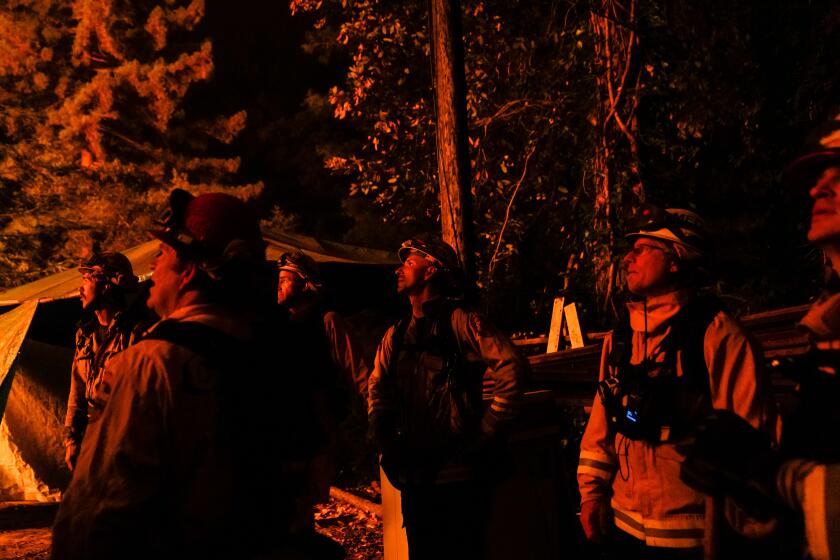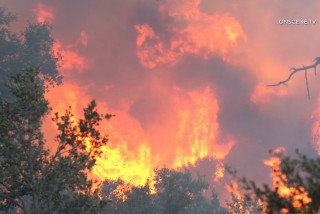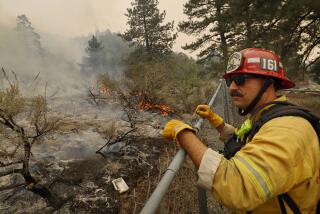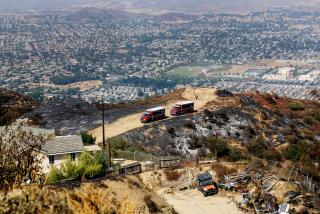California firestorm rewrites record books as crews work to get blazes under control
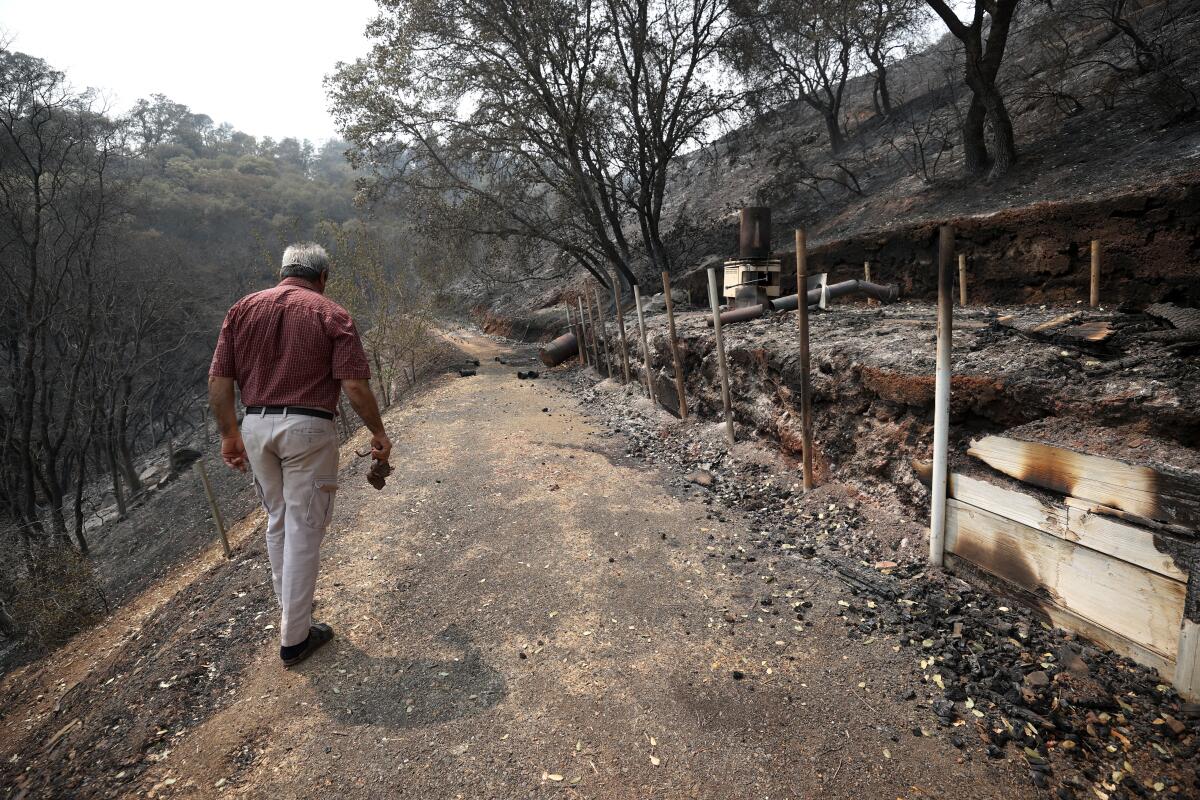
Firefighters are continuing to make progress in their battle against historic blazes, three of which now rank among California’s biggest wildfires ever.
The August Complex fire — which started Aug. 17 in the Mendocino National Forest — is now the ninth-largest in state history at more than 242,000 acres, according to the California Department of Forestry and Fire Protection.
Joining that blaze in the recent rewrite of the record books are the SCU Lightning Complex fire, the state’s second-largest at more than 390,000 acres; and the LNU Lightning Complex fire, which at more than 375,000 acres is the third-largest in California history.
Fire officials said crews are gaining ground as they labor to get those massive blazes under control and allow evacuated residents to return to their homes.
As of Tuesday morning, the August Complex — initially a series of 37 blazes, many of which have since merged or been brought under control — was 20% contained overall.
The SCU Lightning Complex — which began as a collection of about 20 blazes in Contra Costa, Alameda, Santa Clara, Stanislaus and San Joaquin counties — is now 70% contained.
The LNU Lightning Complex — which has charred parts of Napa, Sonoma, Lake, Solano, Yolo and Colusa counties — is 66% contained.
“Still a lot of work ahead, but containment numbers are increasing,” Daniel Berlant, a Cal Fire information officer, said in a video briefing Monday.
Despite the progress, the combined fires have taken a tremendous toll on the state.
Since Aug. 15 — the start of what officials deemed a “lightning siege” that has pelted the state with nearly 14,000 strikes — crews have had to contend with more than 900 new wildfires that have burned in excess of 1.48 million total acres, according to Cal Fire.
Over the first eight months of last year combined, there were roughly 4,600 fires that burned about 63,000 total acres — “so, a significant increase in not just the number of fires to date, but also in the acres burned,” Berlant said.
“And historically, it’s September and October when California experiences its largest and most damaging wildfires,” he said.
The firestorm has ravaged parts of the state’s landscape, leaving burn scars vast enough that they can be seen from space.
Big Basin Redwoods State Park in the Santa Cruz Mountains, California’s oldest state park, was so badly burned that it will be closed to the public for at least one year, said Chris Spohrer, a state parks district superintendent.
Spohrer, who led Gov. Gavin Newsom and Peter Gaynor, the administrator of the Federal Emergency Management Agency, through the scorched grounds, said most of the park’s trees survived but it will take a year for forest managers to remove the ones damaged beyond repair.
Fallen trees and charred vegetation were everywhere, and the park’s nature museum and lodge were reduced to rubble.
“If this is not a gut punch, then you’re not truly conscious as a human being,” Newsom said.
California has a long history of lightning-caused fires, but 2020 is showing how a changing climate can affect the growth of such blazes.
Combined, the recent blazes are projected to destroy more than 3,000 structures statewide, according to Cal Fire. Eight fatalities have been reported. That toll includes a firefighter who was killed in the Mendocino National Forest north of San Francisco, authorities said Monday.
Pool reports contributed to this article.
More to Read
Sign up for Essential California
The most important California stories and recommendations in your inbox every morning.
You may occasionally receive promotional content from the Los Angeles Times.
